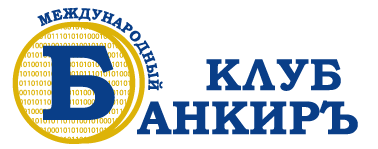✉ Bankir@banksinfo.kiev.ua ✉ Digital@banksinfo.kiev.ua
- News
- Hits: 1286
Fintech boom or a star neobank recipe
This article is for those taking an interest in online banks and the Fintech industry, and thinking of creating their own payment system or a neobank. Here you will find the right recipe for establishing a neobank, with real case studies and well-known brand experiences.
As of August 2021 there are over 220 neobanks worldwide while the total value of the top 10 Fintech startups is $72 billion.
Every day a new Fintech crops up, competing with and giving no slack to the existing players. New Fintech startups are facing more challenges. Everyone has got to have their highlights, and if you do not stand out, the customers will go somewhere else.
How does one make the big time in the midst of other neobanks? How does one attract clients while remaining profitable?
Before registering the legal entity and obtaining a financial license, company founders need to work out and approve a clear business model. Believe me: things are sometimes done the other way: “We will think of it along the way, we will conjure up something.” The questions include: what will be the source of your Fintech project profits, how will it attract clients, where are your clients (my favorite answer is everywhere globally J), how will you be different from the numerous original and strong competitors?
We at SBSB and me personally since 2015 have been engaged in supporting Fintech projects including neobanks. With a substantial background, namely over 25 Fintech projects in production just in 2021, we reviewed 50 stories of successful financial startups and also considered the failed ones, analyzing the reasons of their failure. Personal meetings with founders of Fintech companies and neobanks who shared their vision, experiences and challenges brought in the most important insights.
Over this period I have come up with a clear set of criteria necessary to launch a popular and profitable neobank.
Hitting the same spot
The lack of maneuver and insufficient customer focus of the traditional banks paved for the way of success for today’s online banks.
Some neobanks targeted a very narrow audience “shut out” by banks – clients with low paying capacities and no stable earnings.
For instance, around 80% of XW Bank clients (China) are residents of towns and rural areas without any credit history who had never used bank services. Some businesses even took a step further by narrowing their audience to teenagers (Greenlight, USA) or the LGBTQ+ community (Bung, the Netherlands).
Other neobanks concentrate on isolated country-specific issues: Sony Bank launched a new online banking service in English. Before, one could set up an account with a Japanese bank but after providing numerous documents and only if you were fluent in Japanese.
It’s all about the client
Each Fintech startup puts the customer first. For instance, ZA Bank guarantees extremely fast client service: if a loan issue takes over 30 minutes, ZA Bank provides a cash discount of 10 Hong Kong dollars for each minute of delay.
Iran’s neobank Bankino offers its users round-the-clock support, while the Swiss Yapeal now has a chatbot Yapolina that immediately processes client queries. Qonto (France) took the effort to make its services as convenient as possible for its target audience – business owners and freelancers.
Early salary payout is another popular feature. At Bankino (Iran) users have access up to 50% of the amount payable, and at Chime (USA) they can receive the money two days in advance.
Neobanks are indisputably championing the advancements in the banking industry. For them, online-only operations are no longer a novelty. AI implementation in the neobanks’ operating system is currently in progress, as well as the transition of banking applications to messengers.
Apart from the traditional bank services, neobanks also enable their customers to invest and transact in cryptocurrencies. Spain’s Bnext offers functionality to manage digital assets, and Revolut (Great Britain) — to buy and sell major cryptocurrencies such as Bitcoin and Ethereum. Crypto functions are expected to be launched by Monobank, Ukraine.
As for the success of Wise (formerly, Transferwise), the company achieved it by becoming one of the first providers offering virtually charge-free money transfers.
Most neobanks put together their client base quickly through referral programs: Timo (Vietnam) paid 4 US dollars for the first two friends brought in as customers. MrBeast, the ambassador of Current (USA) announced via his YouTube channel that he would personally transfer $1.00 to the first 100000 persons registering with the help of his referral link.
Is a banking license required?
It is wrongly believed that a bank license is a must for launching and growing a successful neobank. Koho, the Canadian digital bank which partners with the banking institution Peoples Trust, does not hold its own bank license but boasts annual sales of over $500 million and 175,000 customers. Chime, operating under an EMI license, is considered No.1 in the USA (worth $14.5 billion).
ULTIMATELY, A SUCCESSFUL NEOBANK RECIPE:
- Develop a business model:
- identify profit points, charges/interest
- outline a marketing strategy
- break down the target audience, up to specific groups of people
- identify sore points at the potential geographical market and address them with your product
- research the market of local competitors and their strengths/weaknesses
- compile a detailed financial plan
2. Raise investments (starting at 1 million US dollars);
3. Work out the corporate structure and required licenses. As an option – choose a partner bank whose license will entitle you to provide financial services
4.Build a strong energetic team; it is desirable to have a partner experienced in the banking industry
MUSTS:
Maximum client centricity (there are enough traditional banks already)
Flexibility, quick adaptability to changes, sense of the market and willingness to design new products ahead of competitors (who never sleep!)
TRENDING:
Find a brand or a well-known face to promote your product
ALWAYS USEFUL
Research new promising markets, fear not to scale up
28 August 2021
https://www.finextra.com/blogposting/20809/fintech-boom-or-a-star-neobank-recipe








